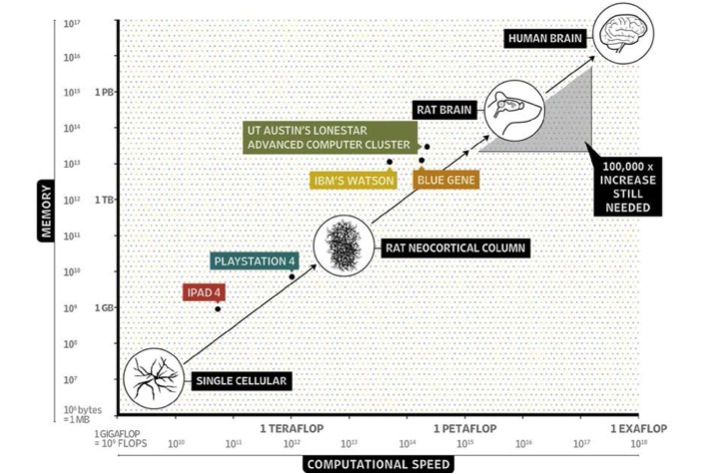Health
In the recent years human health has been tremendously improved thru knowledge acquired by simulations. Computational biology and bioinformatics help understand the mechanisms of living systems.
In the pharma industry, people can benefit of more efficient drugs. As an example, the FDA approved 39 new drugs in 2012, a significant increase of the average over the last 20 years. There are recent success cases of computer-aided drug design in Pfizer, Eli Lilly, GlaxoSmitKline, or Sanofi.
In the genomics area, the identification of 80% of the components of the human genome now have at least one biochemical function associated with them. Such progress, together with molecular simulation or organ simulation will lead to humankind advances, such as customised drugs.
In 2012, Europe has funded the Human Brain project, a major 1B$ investment to develop a working model of the entire brain. On their side, the USA announced in April 2013 a competitor project ($100 million in 2014) called the Brain project. The effort will require the development of new tools not yet available to neuroscientists and, eventually, perhaps lead to progress in treating diseases like Alzheimer’s and epilepsy and traumatic brain injury. It will involve both government agencies and private institutions.
With the recent advances in this area (e.g. next generation of DNA sequencing instruments) the generated data is becoming larger and more complex. Exascale will facilitate more progress.
The above graphics shows the drastic change in order of magnitude
between the simulation of a simple cell and of an entire organ such as the human brain.

